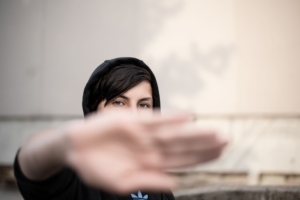
There have been a number of high-profile teen suicides in the U.S. news lately as well as a couple of different surveys showing that kids are more depressed and suicidal than in previous generations. But this is not just an American phenomenon. Teenagers around the world are facing uniquely stressful situations that other generations have not had to face. Older generations may protest that today’s kids are “soft” and how materially-blessed they are now–even in many underdeveloped countries. Do kids have a case that their lives are unusually stressful, depressing, and meaningless? I believe they do, and here are a few reasons why.
It’s true that life for most people throughout history has been “solitary, poor, nasty, brutish, and short,” to quote the old, English philosopher Thomas Hobbes. For many generations, even making it into your teen years without dying was a significant accomplishment. Even in poorer nations, today’s teenagers have more access to material goods and comfort than they ever have. What about the generations that had to go off and fight World War I and II? “You didn’t see them complaining all the time,” one might argue. But I think that’s a simplistic response. In fact, this is such a different age that we live in, I have to write as briefly as possible on this crucially important subject because most people don’t have the attention span to read through more than 3 paragraphs. I’ll probably lose half the readers in the next paragraph just because of the length. Neither can I just post a link to my blog because that is one-click too many for most people. This is not normal.
For starters, one things human beings have always been good at is establishing communities; a network of family, friends, and tribe that look out for each other and provide some sort of identity and moral compass. The modern world (especially post-internet) has become extremely atomized. The rise of sprawling cities and suburbs were an example of how isolation started to become “how we live.” Not knowing the neighbors–so to speak. Massive urbanization (a very new phenomenon) relocates people away from their tight-nit communities to one where ties have to be more artificially created or are never replaced. What the internet has done has fragmented and “suburbanized” our mental and emotional life. Teenagers will literally text each other instead of talk to each other when they are in the same room (that is if texting is still a thing). The I-phone has centralized a lot of our work and socialization toward a machine. That’s an odd thing when you really think about it. One object (the phone) that we carry around all the time connects us to every facet of our life. If we could hug each other through the phone we probably would.
Social media encourages things that are deadly to the spirit, to mental health, and to happiness: thinking about yourself all the time and comparing your life to others. It also allows (through comments and likes) another soul killer: non-constructive criticism without love. And when in our lives are we most likely to be focused on our identity, compare ourselves to others, and to bully others? As teenagers. These social media products are algorithmically-designed to keep us addicted to our most soul-killing behaviors. You may say, ‘well, isn’t it ironic that you are using social media now to write this essay?” Actually, that proves my point: it’s become exceedingly difficult to do anything in the modern-world without a mobile phone, the internet, and a social media account. The transition to the cyber world is the exact opposite of what humans have done for millions of years–moving us away from interacting with nature and communicating with humans face to face. Our brains and nerves are not wired for this and we are stressed by the over-stimulation in areas designed for a slower, more reflective life. It’s no coincidence that severe anxiety and depression is a global issue and that yoga and meditation are on the rise. Our bodies want relief.
Our body, mind, and spirit also long for meaning. Today, many religious communities which once provided that kind of meaning are not much different than the world of social media. They are filled with toxic people, constant debating about who and what is right and wrong, criticism, and abusive behavior. They are not safe places and they are not places for searching and finding who you are. They are a place to learn dogma and rail against those that don’t think like you. Well, we have Facebook and Twitter for that, thank. you very much.
Today’s teenagers have also been over-protected by parents. Although well-intentioned, over-protecting children produces anxiety because kids don’t develop confidence in their abilities and resiliency. I remember growing up in Costa Rica and being a 6 year old that would walk out of the house on my own and go to the Central Park a few blocks away. Playing “army” outside and staying out until 10PM with other kids during the summer. Most of us were far more independent than today’s teenagers, and that’s mostly the result of parenting, but also a cyber-world which encourages people to not conquer nature or the outside but to stay indoors (I’m a very indoor creature myself now and trying to change that because I know it’s not healthy).
Yes, it’s true that today’s youth are more aware of their feelings and speak a lot more openly about their emotional wounds. They are a generation of Sigmund Freuds constantly analyzing how they feel and reporting on it. Is that why the surveys show that so many kids contemplate suicide? I don’t think so. These kids live in an unusually polarized time with instruments that allow more polarization on a massive scale. Education costs and entry requirements have become much higher in most countries. The pressure to get into Ivy-league schools (and now prestigious pre-schools!) is insane. In the U.S. school shootings have become so common, tiny 1st graders have to practice shooter drills. It has to be demoralizing for American teenagers to see that no amount of school tragedies changes the culture. Instead, the architecture and security plans of the school have to change because the kids’ life are not worth much. How a society treats its kids says a lot about a society’s soul and priorities.
Then there’s the fact that most kids are growing up in an economy that has peaked and is in a downward trajectory with no end in sight (India is one of the few countries where that’s not the case. Although social media has created a lot of problems for Indian teens and the country as a whole). I’ve written previously about the global debt program, but even in countries like China, teenagers are depressed because economic opportunities are not what they once were. Our kids been taught that socialism was a failure before they were born, about they know they are living in an unfair society and witnessing late-stage Capitalism (or crony Capitalism).
A couple of final issues: whether you believe in climate change or not, today’s kids are worried about the environment. And they don’t see anything that mobilizes or brings people together. Not storms wiping out people and crops, not religion, not politics, not even a possible war between 3 “superpowers.” World War II brought the U.S. together. It’s hard to imagine anything moving our modern societies toward togetherness. Our most consistent friend and partner is our phone. The search for meaning and transcendence is routed through microchips, screens, wifi, and websites. “We are all cyborgs now,” said Elon Musk (the famous entrepreneur and nutty social media character) referring to our dependence on our phones. That de-humanization is what today’s youth feel. Unfortunately for them, it’s not about big ideas, community, spirit, protecting the next generation, the environment, citizenship or any other higher good. We process reality and interact with nature through the machine. People falling off cliffs on nature walks because they took a selfie is a powerful metaphor.
What can be done? That’s a subject for another time, but the gist of it is that we need to de-construct this artificial world in childhood. In Finland, they start to teach kids to identify poorly-sourced online information in 1st grade. Brilliant. Kids should be taught before they are teenagers about algorithms, marketing tactics, and the artificiality of the world of Tik Tok and Instagram. “You are not your profile.” Schools need to up their game in critical-thinking skills and probably take place more outside in nature and with group-learning. Governments have to produce policies that clearly show that kids are the top priority (not business and profits). Churches, mosques, and temples have to be places of refuge and silence from the hostile world–not extensions of its worst characteristics. Everyone probably needs to learn meditation skills before puberty. All of these things are attempts to reverse the artificiality of this technically-saturated world. Obviously technology has lots of benefits. But we fail to talk in depth about the existentially-powerful dark side of a tech world driven by profit-motives.
Our teenagers sense this, but cannot articulate it. There is an overall atomization of society and a dehumanization of every individual. You are now the sum-total of your online self, a product, and an unimportant entity disconnected from the natural world. Maybe instead, we make kids our top priority. Maybe we give teenagers a break when they are struggling or acting out. Maybe we begin to have compassion and understand they are facing unique anxieties that no generation has ever faced. I hurt for today’s kids. They literally are the future of our world.
Patrick Nachtigall is the author of 6 books including his latest “No Religion Required: A Memoir of Love, Faith, Doubt, and Chocolate Milk.” He has lived and/or worked on 6 continents and currently resides in Italy.
